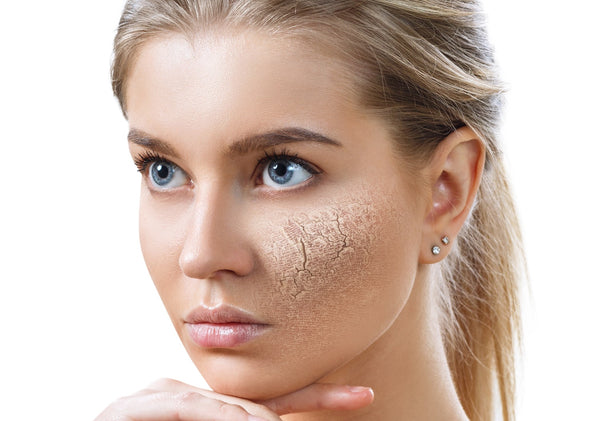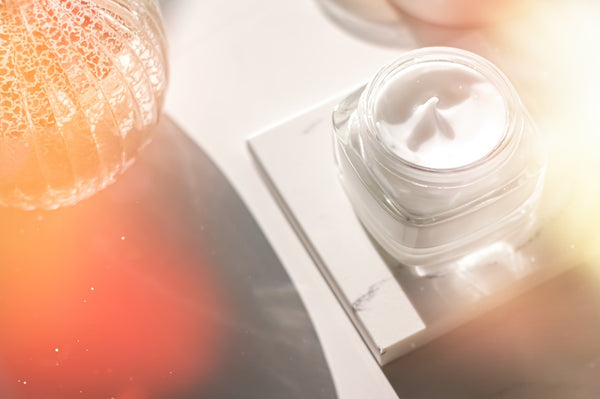Best Products for Post-Plastic Surgery Scar Treatment

Minimizing Marks: Top Scar Treatment Products After Plastic Surgery
So, you finally got that long-awaited cosmetic procedure. Perhaps it was a facelift? Or maybe chin lipo? However, as you ease into the healing phase of your transformation, a new worry starts to creep in: visible scars.
It’s only natural that you want your surgery to be as undetectable as possible. This is why post-surgery scar treatment is almost as important as your provider’s skill and expertise.
At MD GLAM, we know how life-changing it is to invest in your confidence and pursue surgical rejuvenation. After all, our founder is a world-class plastic surgeon. But when visible traces of surgery are left behind? It can feel like you’ve swapped one insecurity for another.
In today’s article, we discuss the nuances of post-op scars and share insights, as well as treatment options for minimizing them.
Ready to make surgery your best-kept secret? Keep reading.
Scar Formation: What It Is and Why It Happens
Scars are growths of fibrous tissue that develop when your skin experiences a cut or incision. It’s part of your body’s natural healing mechanisms.
Your body produces collagen, a protein that's foundational for wound healing. When your skin is cut, this collagen rushes to that site, working diligently to repair the tissue. However, the way this collagen is laid down differs from your original skin structure, leading to the formation of a scar.
Post-operative scars can vary based on a few factors, such as:
- Size and depth of the incision
- Your skin type
- Age
- Genetics
- Surgical site
While some scars fade on their own, others can be more prominent. In this case, scar reduction products and treatments add the finishing touch to your rejuvenation.
But not all skincare will minimize your scars. This is why knowing how to read cosmetic labels is so critical.
Understanding Ingredients in Post-Surgery Scar Treatments
While some ingredients combat scarring, others can make them more pronounced. You wouldn't want to reach for a formula that highlights your surgical marks, right?
To avoid that misstep, here are some ingredients you’ll want to gravitate towards instead:
Retinol
Retinol is a synthetic derivative of vitamin A, a popular ingredient for combatting wrinkles, fine lines, acne, and uneven skin texture. It kickstarts the cell turnover process, which clears away dead skin cells and makes space for new ones.
This skin renewal, combined with retinol’s collagen-boosting and anti-inflammatory properties, helps fade scars seamlessly into your complexion.
Vitamin E
Experts have long debated using vitamin E for scars — some claim it’s beneficial, while others say it has little to no effect. Here at MD GLAM, we’re big fans of the powerful antioxidant.
Vitamin E may not be as potent as retinol, but it does serve as a nice reinforcement. It protects the skin from free radical damage. This is important during the healing process, as oxidative stress can worsen scar appearance.
Silicone
You’ll find that many scar treatment creams are paired with silicone scar sheets. This is because silicone acts as a protective barrier over your scar, locking in moisture and fostering a better healing environment.
This helps reduce scar size, improve texture, and alleviate discomfort. It's especially effective for raised scars (like hypertrophic and keloid scars).
Onion Extract
Onion extract, comes from, well, onions. The derivative (Allium cepa) is widely used in skincare, particularly in products designed for scar treatment.
In addition to being anti-inflammatory and antimicrobial, onion extract triggers collagen remodeling. In other words, it helps your body break down old, damaged collagen and replace it with new collagen fibers. This improves the texture and thickness of your scars, as well as the strength and flexibility of the skin around it.
Lastly, always patch-test new ingredients, especially for delicate areas like a post-surgical site.
Curious to know which are the most effective scar gels? We’ve got you covered; just be sure to check with your surgeon first.
At-Home Scar Reduction Products
Now that you know which ingredients are scar-friendly, finding the right skincare products just got a whole lot easier.
Here are a few of our holy grails:
Retinol-C Intense Eye Serum
MD GLAM’s Retinol-C Intense Eye Serum is perfect for preventing scars from procedures around the eye area (like a facelift or brow lift).
This soothing yet powerful serum combines the potency of retinol and vitamin C to encourage cell turnover and collagen production while simultaneously brightening and healing the skin. Its skin-balancing and age-defying benefits are a bonus.
Ebanel Scar Master
Ebanel Scar Master talks a big game, promising to lighten and soften the texture of every type of scar imaginable — old and new, surgical, burns, cuts, and more. How’s that possible?
This formula uses ingredients like onion extract, vitamin E, and emu oil (yes, from actual emus) to regulate your skin’s moisture and stimulate collagen synthesis. This, in turn, helps erase the appearance of different scars.
Sunshout Sunscreen SPF 50
We love a little vitamin D, but too much exposure can darken or make scars more pronounced. It also delays the healing process.
MD GLAM’s Sunshout Sunscreen SPF 50 contains natural sunblock, skin-loving vitamins, and skin-shielding antioxidants. This unique blend works overtime to protect your skin while healing and nourishing surgical scar tissue.
Rather skip the DIY approach? You’ve got options.
Professional Scar Treatments
The most popular professional scar treatments are:
- Laser therapy: uses concentrated light to reduce scar tissue by stimulating collagen production and skin regeneration.
- Microneedling: tiny needles create micro-injuries, prompting the body's natural healing process and boosting collagen production.
- Chemical peels: chemical solutions that remove the top layers of skin, reducing surface scars and improving overall texture.
- Steroid injections: can help flatten and soften raised scars, as well as reduce itching and pain.
- Dermabrasion: an intense exfoliation procedure that mechanically sands down the top layers of the skin.
- Fillers: may help raise the sunken area to the level of the surrounding skin, reducing the visibility of your scar.
If you choose Dr. Cat as your surgeon, plastic surgery scar care is an automatic part of your surgical plan. She takes a 360-degree approach to scar prevention, which includes:
- Thin, precise, and discreetly-placed incisions
- Silicone scar sheets two weeks post-op
- Highly-effective scar gels as needed
- Ongoing maintenance and advice
She’ll also provide post-operative scar tips so you’re never left with evidence of surgical intervention, such as:
- Always apply sun protection for scars with high-quality SPF.
- Don’t engage in bad skin habits (like smoking or picking at your incision).
- Stay consistent with your post-surgery scar treatments.
- Adhere to your post-operative guidelines.
MD GLAM: No Scars, Just You
You deserve to love the skin you’re in, and if that means a little nip here and a little tuck there, we say power to you for prioritizing your confidence. But let's be real — you don't want scars stealing the spotlight from your makeover.
The right post-surgery scar treatment can make all the difference in ensuring your final results are as flawless as your vision. What better post-op products to lean on than those crafted by a board-certified, renowned surgeon?








